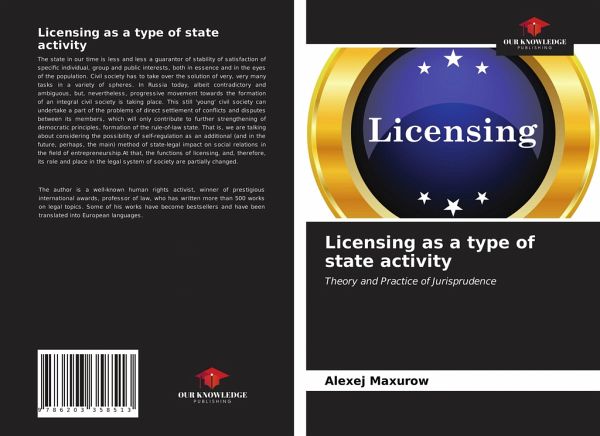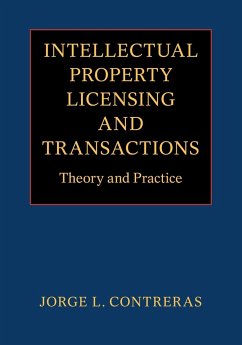
Licensing as a type of state activity
Theory and Practice of Jurisprudence
Versandkostenfrei!
Versandfertig in 1-2 Wochen
39,99 €
inkl. MwSt.

PAYBACK Punkte
20 °P sammeln!
The state in our time is less and less a guarantor of stability of satisfaction of specific individual, group and public interests, both in essence and in the eyes of the population. Civil society has to take over the solution of very, very many tasks in a variety of spheres. In Russia today, albeit contradictory and ambiguous, but, nevertheless, progressive movement towards the formation of an integral civil society is taking place. This still 'young' civil society can undertake a part of the problems of direct settlement of conflicts and disputes between its members, which will only contribu...
The state in our time is less and less a guarantor of stability of satisfaction of specific individual, group and public interests, both in essence and in the eyes of the population. Civil society has to take over the solution of very, very many tasks in a variety of spheres. In Russia today, albeit contradictory and ambiguous, but, nevertheless, progressive movement towards the formation of an integral civil society is taking place. This still 'young' civil society can undertake a part of the problems of direct settlement of conflicts and disputes between its members, which will only contribute to further strengthening of democratic principles, formation of the rule-of-law state. That is, we are talking about considering the possibility of self-regulation as an additional (and in the future, perhaps, the main) method of state-legal impact on social relations in the field of entrepreneurship.At that, the functions of licensing, and, therefore, its role and place in the legal system of society are partially changed.












